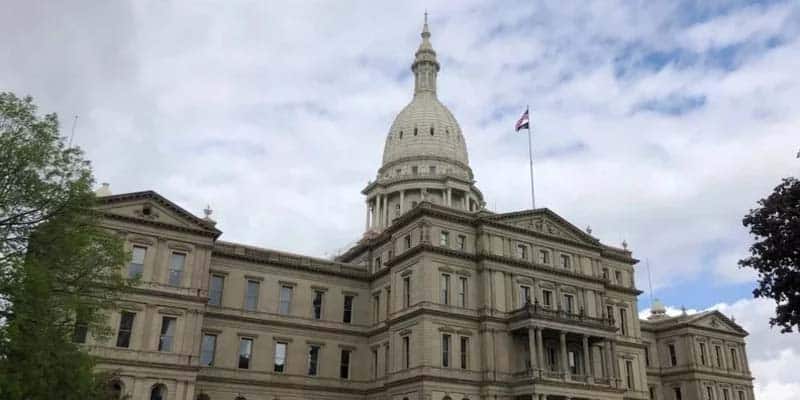Lawmakers in the Great Lakes State are going “all-in” on legalizing online gambling in Michigan.
Michigan Legislature passed an iGaming bill package this week, which includes the potential legalization of four types of web-based gambling: online casinos, Internet poker, sports betting, and daily fantasy sports.
The state Senate voted 35-3 Wednesday morning, and the House of Representatives—which initially passed the package on a 63-45 vote in October—concurred with the minor changes made to the legislation by the upper chamber.
Now, the passed bill package heads to Gov. Gretchen Whitmer’s desk and awaits her signature. The governor is expected to sign the bill into law before Christmas—officially legalizing online gambling in Michigan.
There is currently no timetable for when online casinos and sportsbooks will launch since officials from the Michigan Gaming Control Board need time to draft rules and regulations, issue licenses to approved operators, and conduct tests on the technology used—such as geolocation tracking for mobile casino apps.
However, some Michigan lawmakers are hoping to have at least online sports betting ready in time for the March Madness college basketball tournament, which is annually one of the most wagered on sporting events in the United States.
If the omnibus legislation is signed, anyone who has two feet inside Michigan’s state lines and at least 21 years old will be allowed to gamble with real money on smartphones, tablets, and desktop computers.
Gambling via websites or mobile apps can only be authorized at existing brick-and-mortar casinos in Michigan, which includes three commercial casinos in Detroit as well as 23 tribal casinos operating throughout the state.
Internet gaming offered by the 26 locations will include poker, blackjack, slots, and other Las Vegas-style casino games that are still to be determined. Rules on bet types for sportsbooks and DFS contest is expected to be drafted in early 2019.
Eligible casinos must be approved for an Internet gaming license, which lasts five years and cost $50,000 for the application fee, $100,000 for the initial license, and $50,000 for annual renewal.
Both online sports betting and daily fantasy sports contests are subject to an 8.4% tax rate on gross revenue, with an additional 3.25% applied on the take from casinos located in Detroit.
Taxes paid to the state for online casino gambling revenue varies between 20% and 28%, with the former applying to below $4 million in annual profits and the latter percentage applying to revenue over $12 million per year.
Most of the tax revenue is directed to the Michigan School Aid Fund, which is what reportedly got Whitmer on board with the proposal. Additional tax money will go to the First Responder Presumed Coverage Fund, administrative costs, and programs to assist problem gamblers.
The legalization of online gambling in the United States is slowly beginning to increase in popularity as states look for new avenues of revenue to raise tax money without raising taxes on state residents.
Today, four states—Deleware, Nevada, New Jersey, and Pennslyvania—offer Internet-based gambling at the state level.
And barring any unforeseen setbacks, it looks like Michigan will almost certainly become the next state to push its chips to the center of the table and go “all-in” on legalizing all legitimate forms of gambling.

